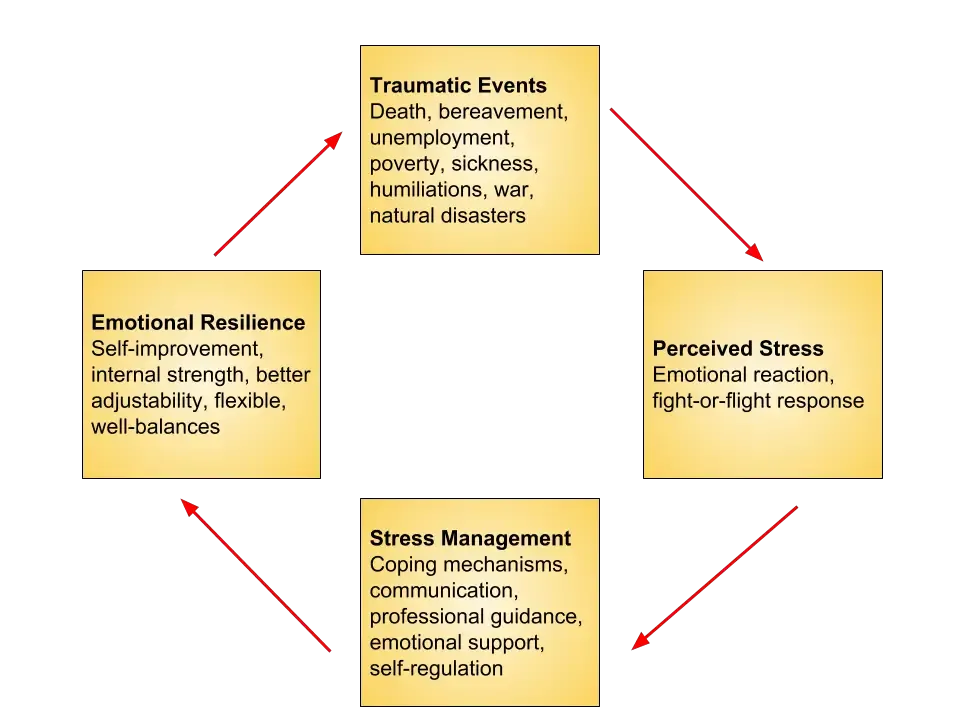
Stress is an inevitable part of life, affecting individuals both psychologically and emotionally. It can be caused by various factors, such as work pressure, personal relationships, or financial difficulties. However, the ability to adapt and endure through challenging situations is crucial for maintaining good mental health.
Developing cognitive resilience is key to building mental strength. Cognitive resilience refers to the capacity to bounce back from stress and adversity. It involves the ability to think clearly, make rational decisions, and maintain focus even in the face of overwhelming challenges. By cultivating cognitive resilience, individuals can enhance their overall well-being and effectively manage stress.
Building cognitive resilience requires developing skills such as problem-solving, emotional regulation, and positive thinking. These skills help individuals approach stressors with a proactive mindset, enabling them to find solutions and adapt to difficult circumstances. Additionally, cognitive resilience involves cultivating self-awareness and self-compassion, allowing individuals to better understand their own strengths and limitations.
By strengthening cognitive resilience, individuals can improve their ability to cope with stress and enhance their mental health. It enables them to navigate through life’s ups and downs with greater ease and adaptability. Ultimately, building cognitive resilience is an ongoing process that requires practice and persistence, but the rewards are well worth the effort.
Understanding Cognitive Resilience
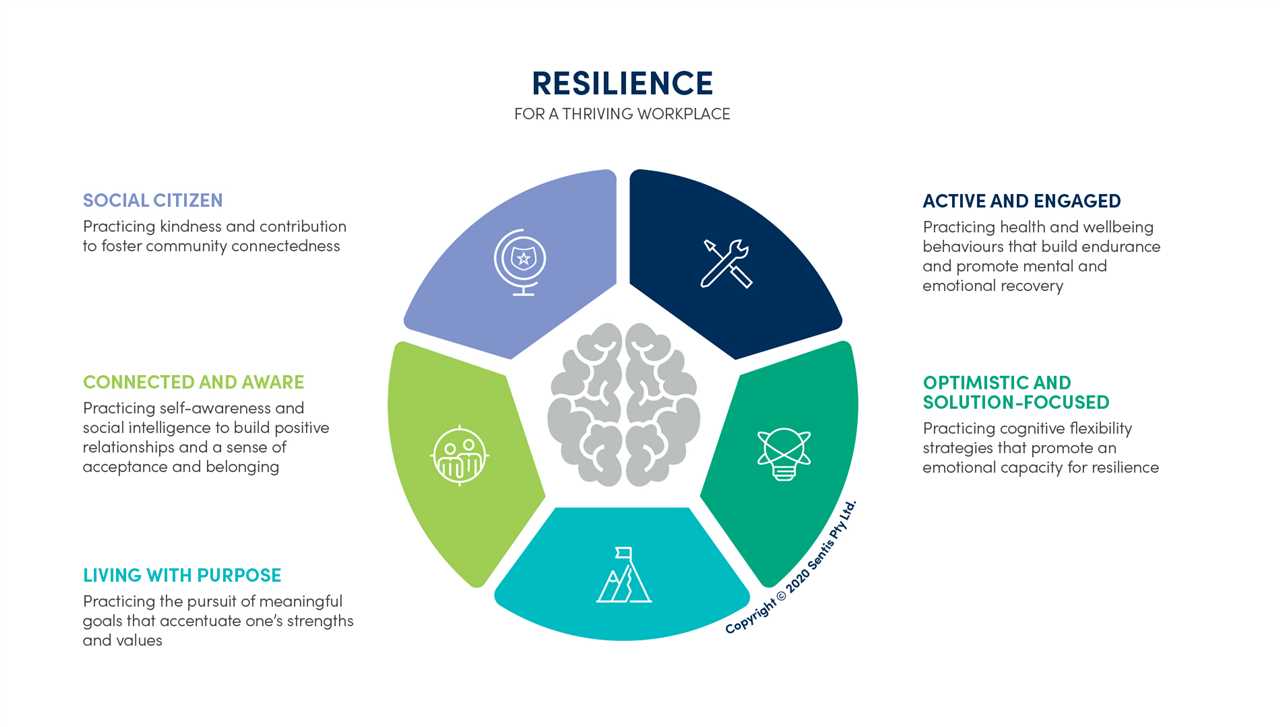
Cognitive resilience refers to an individual’s ability to adapt and endure in the face of psychological stress. It involves the capacity to maintain flexibility and mental strength, allowing individuals to effectively cope with challenges and bounce back from adversity.
Resilience is a psychological trait that can be developed and strengthened over time. It enables individuals to navigate through difficult situations, such as work-related stress, personal loss, or major life changes, without experiencing significant negative effects on their mental well-being.
One key aspect of cognitive resilience is the ability to regulate emotions and thoughts in a healthy and constructive manner. This involves being aware of one’s own emotions, understanding their impact on behavior, and developing strategies to manage and cope with them effectively.
Another important component of cognitive resilience is cognitive flexibility. This refers to the ability to adapt and change one’s thinking and problem-solving strategies when faced with new or challenging situations. It allows individuals to approach problems from different perspectives and find creative solutions.
Building cognitive resilience involves developing a growth mindset, which is the belief that abilities and intelligence can be developed through effort and practice. This mindset encourages individuals to embrace challenges, persevere in the face of setbacks, and view failure as an opportunity for growth and learning.
Furthermore, building strong social support networks and maintaining healthy relationships can enhance cognitive resilience. Having a support system of family, friends, or colleagues who provide emotional support, encouragement, and practical assistance can help individuals cope with stress and bounce back from difficult situations.
In conclusion, cognitive resilience is a crucial trait that enables individuals to effectively navigate through challenging situations and bounce back from adversity. By developing adaptability, endurance, and mental strength, individuals can build their cognitive resilience and enhance their overall well-being.
Definition and Importance
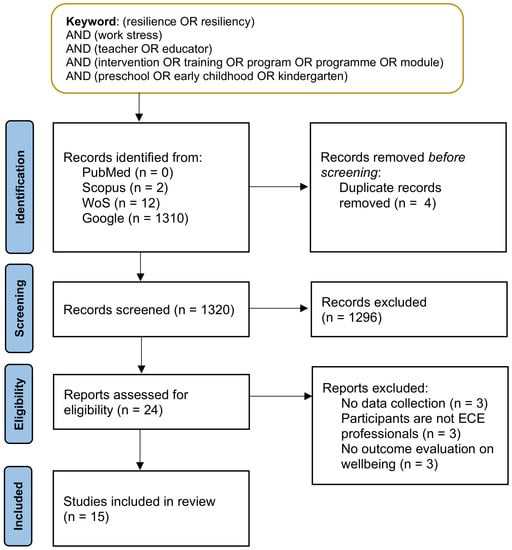
Cognitive resilience refers to the ability of an individual to adapt and bounce back from stressful situations. It involves the mental flexibility, endurance, and adaptability to effectively cope with various challenges and pressures. This resilience is not limited to just physical strength, but also encompasses emotional and cognitive strength.
The importance of cognitive resilience cannot be overstated. In today’s fast-paced and demanding world, individuals are constantly exposed to high levels of stress. This can have detrimental effects on their mental health and overall well-being. However, with cognitive resilience, individuals are better equipped to handle stress and maintain their mental health.
Cognitive resilience enables individuals to effectively navigate through difficult situations, maintain a positive outlook, and find solutions to problems. It allows individuals to bounce back from setbacks, learn from failures, and grow stronger as a result. This resilience also helps individuals maintain focus, make sound decisions, and adapt to changing circumstances.
By building cognitive resilience, individuals can enhance their overall mental strength and well-being. It helps individuals develop a positive mindset, improve their problem-solving skills, and build a strong sense of self. This resilience also plays a crucial role in maintaining healthy relationships, managing emotions, and achieving personal and professional goals.
In conclusion, cognitive resilience is of utmost importance in today’s stress-filled world. It provides individuals with the necessary tools to effectively cope with challenges and maintain their mental health. By cultivating cognitive resilience, individuals can enhance their overall well-being and lead fulfilling lives.
Factors Affecting Cognitive Resilience
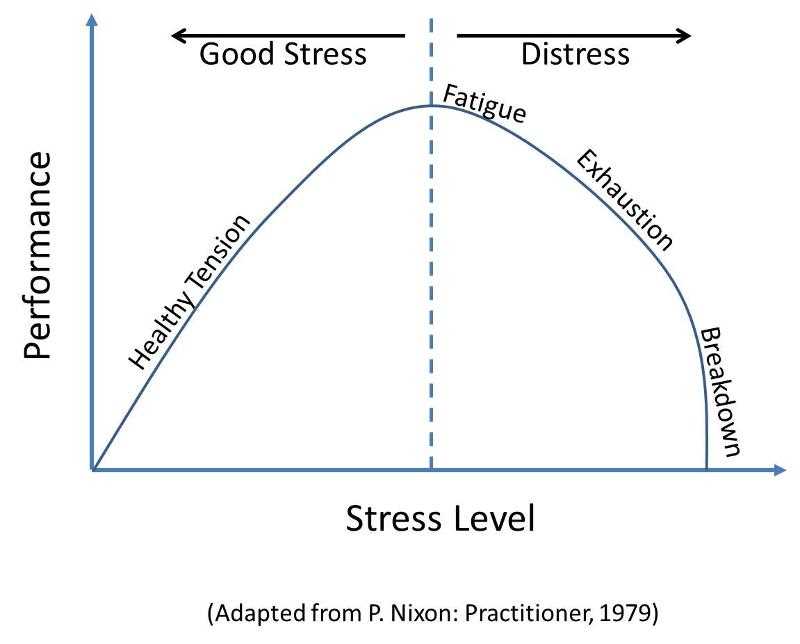
Cognitive resilience refers to an individual’s ability to adapt and maintain mental strength in the face of stress and adversity. Several factors can influence one’s cognitive resilience, including:
- Stress management skills: Individuals who possess effective stress management skills are better equipped to handle and cope with challenging situations. These skills can include techniques such as deep breathing, mindfulness, and positive self-talk.
- Emotional intelligence: Emotional intelligence plays a crucial role in cognitive resilience. Individuals with high emotional intelligence are better able to understand and regulate their emotions, which helps them navigate stressful situations more effectively.
- Endurance: Cognitive resilience requires mental endurance. Individuals with higher levels of endurance are better able to persist and maintain focus in the face of adversity. Building mental endurance can be achieved through practices such as regular exercise, meditation, and challenging oneself intellectually.
- Flexibility: Flexibility in thinking and problem-solving is another important factor in cognitive resilience. Being able to adapt and find alternative solutions when faced with obstacles or setbacks can help individuals maintain their mental strength and overcome challenges.
- Adaptability: The ability to adapt to new situations and changes is crucial for cognitive resilience. Being open to new ideas, perspectives, and approaches allows individuals to adjust their thinking and behaviors when faced with stressors.
By understanding and cultivating these factors, individuals can enhance their cognitive resilience and better navigate the inevitable stressors and challenges that life presents.
Strategies for Building Mental Strength
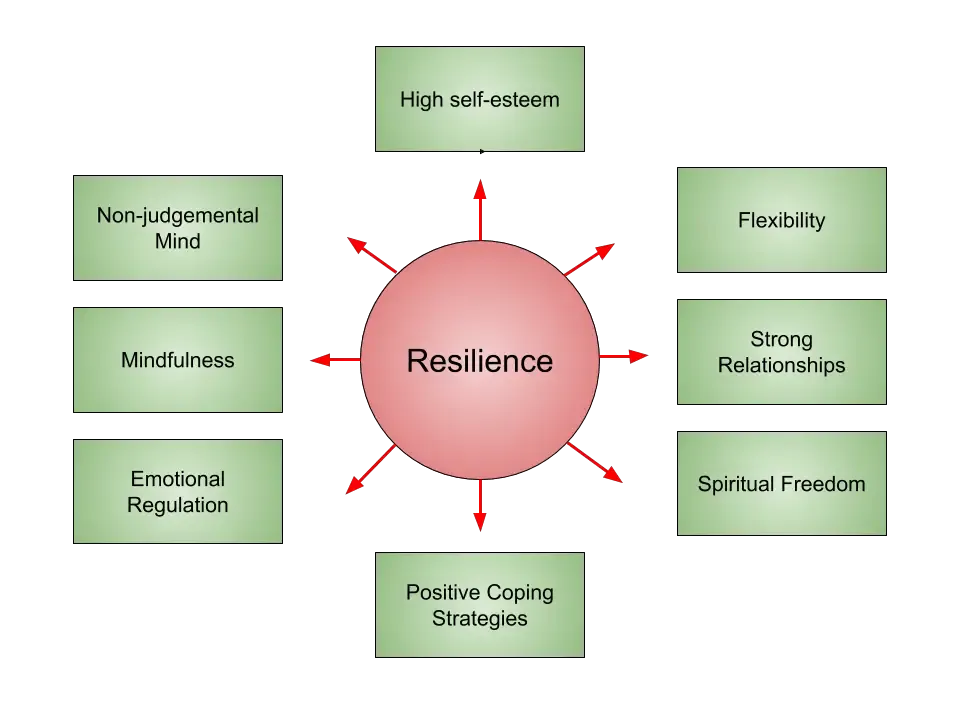
To build mental strength and enhance cognitive resilience to stress, individuals can adopt various strategies that focus on improving their mental, emotional, and psychological endurance. These strategies include:
1. Practice Mindfulness: Engaging in mindfulness exercises, such as meditation or deep breathing, can help individuals develop a greater awareness of their thoughts and emotions. This can improve their ability to manage stress and enhance their mental resilience.
2. Cultivate Positive Thinking: Shifting negative thoughts into positive ones can help individuals build mental strength and adaptability. By focusing on positive aspects of situations and reframing negative experiences, individuals can develop a more optimistic mindset.
3. Set Realistic Goals: Setting achievable goals can help individuals build mental resilience by providing them with a sense of purpose and direction. Breaking larger goals into smaller, manageable tasks can also enhance their ability to cope with stress and overcome challenges.
4. Build a Supportive Network: Surrounding oneself with a supportive network of family, friends, or mentors can provide individuals with emotional support during times of stress. This can help build mental strength and resilience by providing a sense of belonging and encouragement.
5. Practice Self-Care: Engaging in self-care activities, such as exercise, healthy eating, and adequate sleep, can help individuals build mental strength and endurance. Taking care of one’s physical and emotional well-being is essential for managing stress and promoting cognitive resilience.
6. Seek Professional Help: If individuals are struggling with building mental strength or managing stress on their own, seeking professional help from a therapist or counselor can be beneficial. A mental health professional can provide guidance, support, and tools to enhance cognitive resilience and adaptability.
By implementing these strategies, individuals can develop the mental strength and resilience needed to navigate and overcome the challenges of stress and adversity.
Developing a Growth Mindset
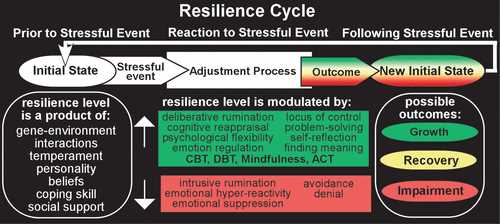
Developing a growth mindset is essential for building cognitive resilience and mental strength. A growth mindset is the belief that abilities and intelligence can be developed through dedication and hard work. It is the belief that challenges are opportunities for growth and learning.
Endurance and resilience are key components of a growth mindset. By embracing challenges and setbacks, individuals with a growth mindset develop the emotional and psychological strength to persevere in the face of stress. They view failure as a stepping stone to success and understand that setbacks are temporary and can be overcome with effort and adaptability.
A growth mindset also fosters a sense of adaptability and flexibility. Individuals with this mindset are open to new ideas and approaches, and they are willing to make adjustments when faced with obstacles. They understand that change is a natural part of life and that the ability to adapt is crucial for personal and professional growth.
Mental and cognitive growth are also central to a growth mindset. Individuals with this mindset actively seek out opportunities to learn and expand their knowledge. They view challenges as a chance to develop new skills and improve their abilities. They understand that intelligence is not fixed, but can be developed through continuous learning and effort.
In summary, developing a growth mindset is essential for building cognitive resilience and mental strength. It involves embracing challenges, developing endurance and resilience, fostering adaptability, and actively seeking out opportunities for mental and cognitive growth. By cultivating a growth mindset, individuals can build the resilience and strength needed to thrive in the face of stress and adversity.
Practicing Self-Compassion
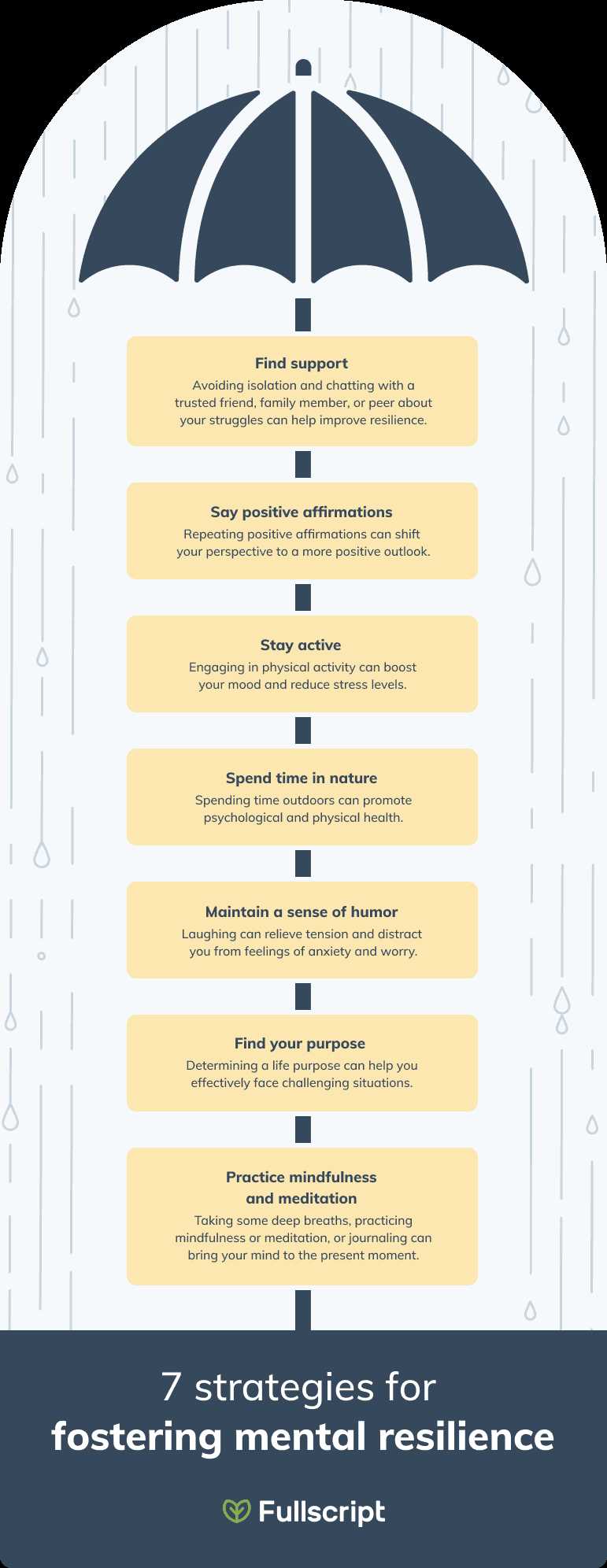
Mental resilience to stress is not just about endurance and adaptability; it also involves cultivating self-compassion. Self-compassion is the psychological and emotional practice of treating oneself with kindness and understanding, especially in times of difficulty or failure.
When faced with stress and challenges, it is common to be self-critical and judgmental, which can further exacerbate feelings of anxiety and overwhelm. However, by practicing self-compassion, individuals can develop a more positive and supportive inner dialogue, which can enhance their cognitive resilience.
Self-compassion involves acknowledging one’s own suffering and responding with kindness and empathy, just as one would do for a close friend or loved one. This practice helps to cultivate a sense of self-worth and acceptance, which can buffer against the negative effects of stress and promote mental well-being.
Research has shown that individuals who practice self-compassion have higher levels of psychological resilience and are better able to cope with stress. They are less likely to experience symptoms of depression and anxiety and are more likely to bounce back from setbacks and challenges.
To cultivate self-compassion, individuals can engage in various exercises and techniques. These may include self-reflective journaling, meditation, and self-care activities. It is important to prioritize self-compassion as an essential component of building cognitive resilience and mental strength.
By practicing self-compassion, individuals can develop a more compassionate and understanding relationship with themselves. This can enhance their ability to navigate and cope with stress, build resilience, and foster overall mental well-being.
Building Social Connections
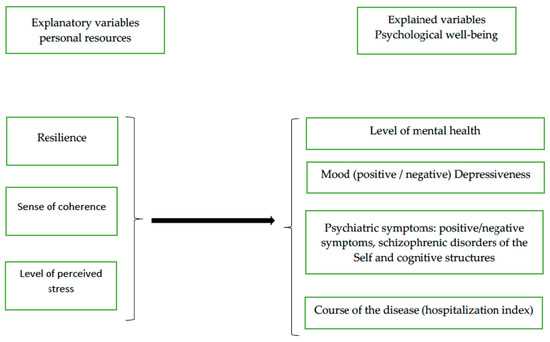
Psychological endurance and resilience are not solely dependent on individual strength and adaptability. Social connections play a crucial role in building cognitive and mental strength to withstand emotional stress.
When faced with challenging situations, having a strong support network can provide a sense of belonging and security, which can contribute to one’s ability to cope with stress. Social connections can provide emotional support, empathy, and understanding, allowing individuals to express their feelings and concerns without judgment.
Engaging in meaningful relationships and social interactions can also enhance cognitive resilience. Social connections can stimulate the brain, promoting mental agility and flexibility. By engaging in conversations and activities with others, individuals can gain new perspectives and ideas, expanding their cognitive abilities.
Furthermore, social connections can act as a buffer against the negative effects of stress. Research has shown that individuals with strong social ties tend to have lower levels of stress hormones and better overall mental health. The emotional support received from social connections can help individuals navigate through challenging situations more effectively.
Building social connections requires effort and active participation. It involves reaching out to others, maintaining existing relationships, and cultivating new ones. This can be achieved by joining social groups, volunteering, attending community events, or simply reaching out to friends and family.
In conclusion, building social connections is crucial for enhancing cognitive and mental resilience. By nurturing meaningful relationships and engaging in social interactions, individuals can strengthen their psychological endurance, adaptability, and overall well-being.

I am Patrina de Silva, a psychologist and mental health blogger in Sri Lanka. After obtaining psychology degrees from the University of Colombo and Monash University, I returned home to work as a counselor while also starting the popular blog “Pressy but Happy” to provide advice on psychological issues. Over the past decade, my empathetic articles have made my blog a leading mental health resource in the country. In addition to writing, I maintain a private therapy practice, frequently volunteer counseling time, and conduct seminars, driven by my passion for destigmatizing mental illness and educating the public on the mind-body connection. I strive to be an influential voice in my field through my compassionate approach.
